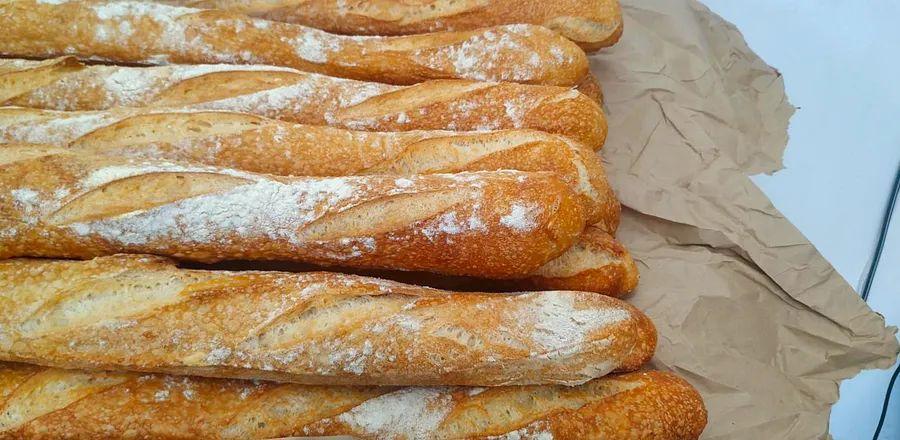The Cherished French Baguette Achieves UNESCO World Heritage Status

The iconic baguette—the crispy symbol of French baking globally—is set to be included on the United Nations’ list of intangible cultural heritage, celebrating it as a valuable tradition to be preserved for future generations.
During a meeting in Morocco this week, experts from the United Nations Educational, Scientific and Cultural Organization (UNESCO) determined that the classic French baguette—crafted from just flour, water, salt, and yeast—merited U.N. recognition. This decision comes in response to France’s culture ministry's alarm over the “continuous decline” of traditional bakeries, with approximately 400 shutting down annually over the last fifty years.
Audrey Azoulay, the chief of the U.N. cultural agency, stated that the decision honors more than just the bread; it celebrates the “savoir-faire of artisanal bakers” and acknowledges it as a “daily ritual.”
Azoulay, a former French culture minister, emphasized the importance of ensuring that such craft knowledge and social customs continue to thrive in the future.
The agency describes intangible cultural heritage as 'traditions or living expressions that are passed down from our ancestors to future generations.'
In France, bakers appeared to feel a sense of pride, though not particularly surprised.
'Naturally, it belongs on the list because the baguette represents the world. It’s universal,' remarked Asma Farhat, a baker at Julien’s Bakery near the Champs-Elysees in Paris. 'Without a baguette, you can't enjoy a proper meal. In the morning, you can toast it; for lunch, it makes a great sandwich; and it perfectly complements dinner,' she added.
Though it may seem like a quintessentially French creation, the baguette is believed to have been invented by August Zang, a baker from Vienna, in 1839. Zang introduced France’s steam oven, enabling the production of bread with a crispy crust and airy interior.
The baguette truly reached its peak in the 1920s, following a French law that restricted bakers from starting their work before 4 a.m. Its long, slender shape allowed it to be made more swiftly than thicker breads, making it the only option bakers could prepare in time for breakfast.
Even though the number of traditional bakeries has decreased, the 67 million residents of France continue to be passionate consumers of baguettes. According to France’s 'Bread Observatory,' an esteemed organization that tracks the status of this beloved bread, the French devour approximately 320 baguettes of various types every second. This averages out to half a baguette per person each day, totaling around 10 billion annually.
Observers point out that the quality of baguettes can often be subpar.
'In France, it’s very easy to end up with a poor-quality baguette. The traditional baguette from local bakeries is the one that’s truly at risk. It’s about quality over quantity,' noted 52-year-old Parisian resident Marine Fourchier.
In January, the French supermarket chain Leclerc faced backlash from traditional bakers and farmers over its widely publicized 29-cent baguette, which was accused of compromising the quality of the iconic 26-inch loaf. Typically, a baguette costs just over 90 euro cents (US$1), and some view this price as a barometer of the French economy's health.

Photo credit: Shutterstock
This year, the French baguette was added to UNESCO’s Intangible Cultural Heritage list, joining various other global dishes and traditions, including:
- Al Talli, a form of traditional embroidery (United Arab Emirates)
- Beekeeping practices (Slovenia)
- Alheda’a, the oral traditions for calling camel herds (Saudi Arabia, Oman, and United Arab Emirates)
- Furyu-odori, ceremonial dance forms (Japan)
- Hungarian string band tradition (Hungary)
- Talchum, a masked dance drama (Republic of Korea)
- The art of the traditional blouse featuring shoulder embroidery (altiţă) (Romania and the Republic of Moldova)
- Traditional tea processing techniques (China)
- The art of pottery-making by the Chăm people (Vietnam)
- Ukrainian borscht cooking (Ukraine)
- Traditional Ahlat stonework (Türkiye)
Evaluation :
5/5



